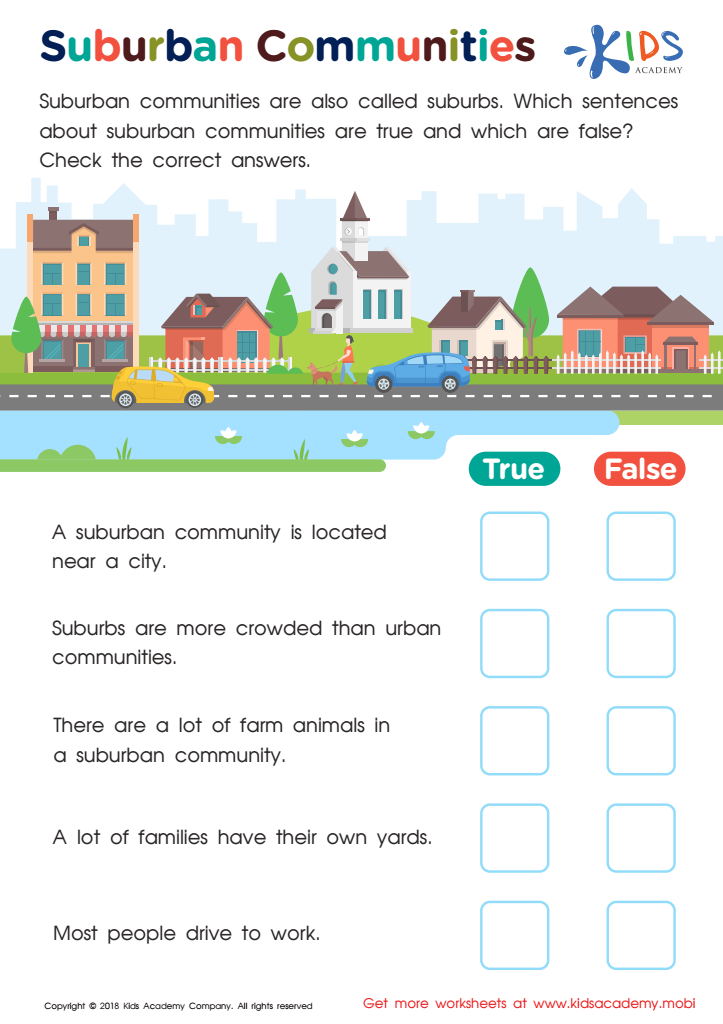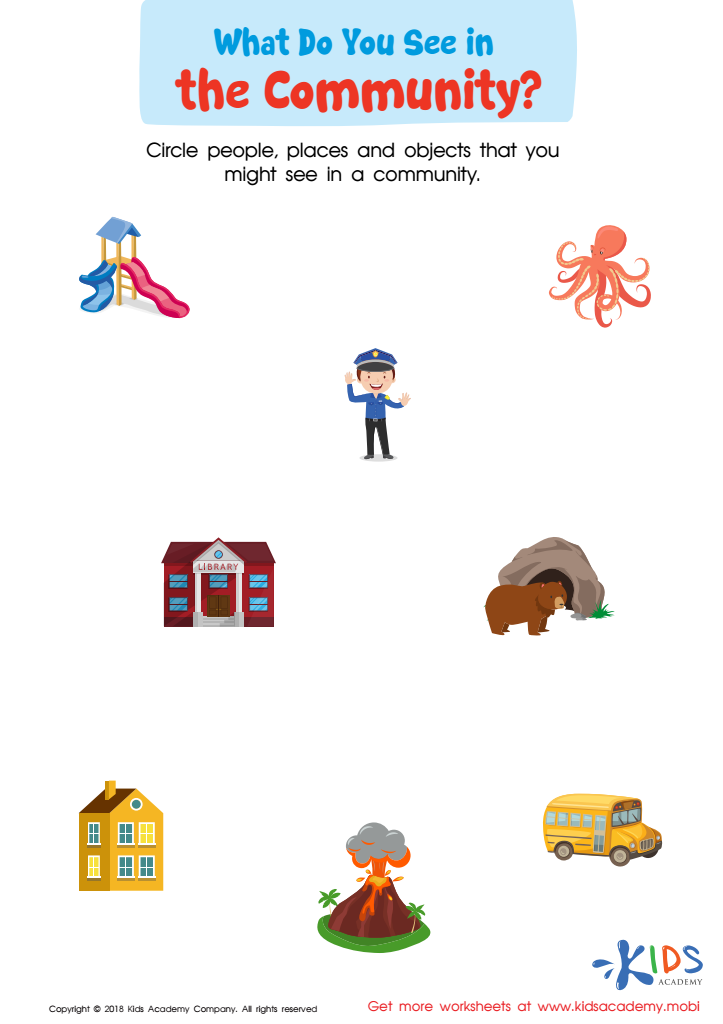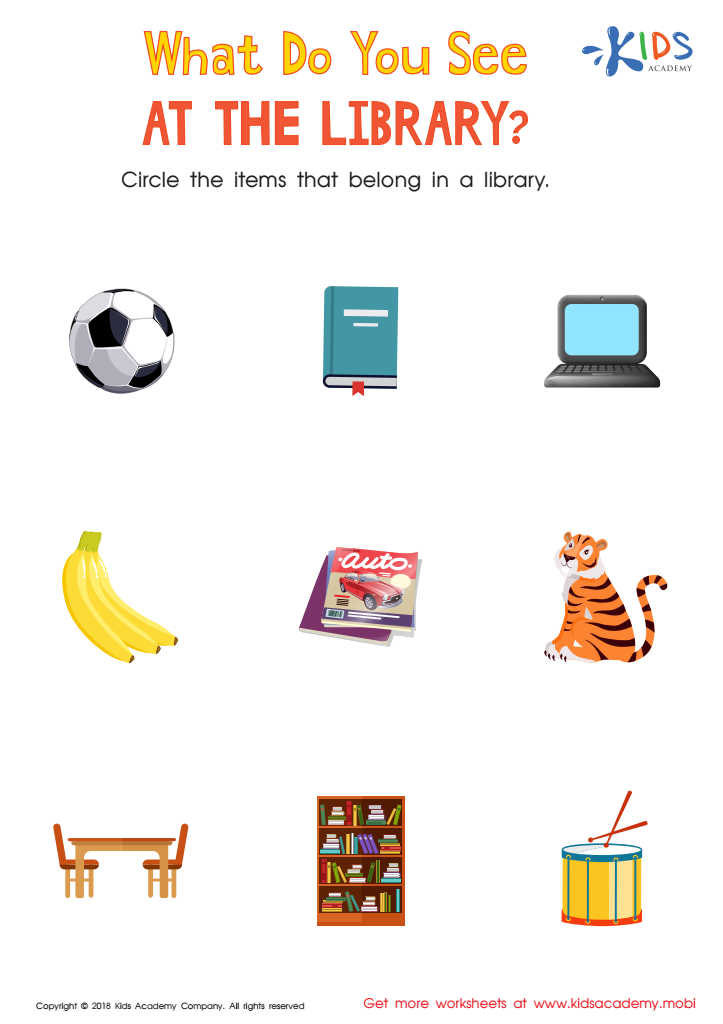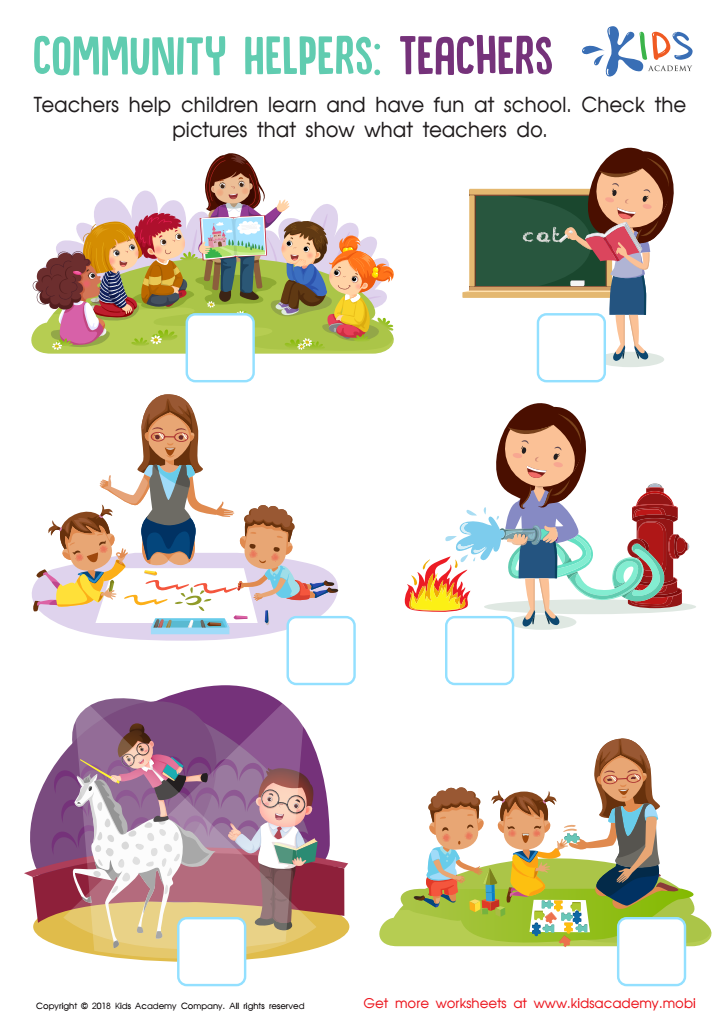Vocabulary Building Normal Community Worksheets for Ages 3-8
4 filtered results
-
From - To
Enhance your child's vocabulary with our engaging Vocabulary Building Worksheets, designed specifically for children aged 3-8. These worksheets focus on key concepts related to community and social studies, helping young learners understand their surroundings while boosting their language skills. Through interactive activities, children explore important community terms, making learning both fun and meaningful. Perfect for early educators and parents, our printable resources foster language development and encourage curiosity about the world around them. Give your child the tools they need to communicate effectively and build a strong vocabulary foundation. Start their learning journey today with our thoughtfully crafted worksheets!


Suburban Communities Worksheet


What Do You See in the Community Worksheet


What Do you See at the Library? Worksheet


Teachers Community Helpers Worksheet
Vocabulary building in early childhood is crucial for a child's cognitive and social development, particularly for ages 3 to 8. During this formative period, children are rapidly acquiring language skills, and a rich vocabulary lays the foundation for effective communication, critical thinking, and literacy. When parents and teachers prioritize vocabulary development, they empower children to express their thoughts, emotions, and ideas, fostering confident communicators.
Additionally, robust vocabulary skills are directly correlated with academic success. Children with strong vocabularies are better equipped to understand and engage with complex texts, enhancing their reading comprehension and writing abilities. Introducing new words in fun, relatable contexts encourages curiosity and a love for learning—key attitudes that promote ongoing education.
Moreover, vocabulary building supports social interaction and emotional intelligence. By learning to articulate their feelings accurately, children can better navigate relationships and resolve conflicts. As a result, both teachers and parents can play a significant role in enriching a child's language environment, turning everyday moments into vocabulary lessons through conversation, reading, and play.
In fostering a community focused on vocabulary building, collaborative efforts create a supportive ecosystem that benefits children's overall development, ensuring they thrive both in and out of the classroom.
 Assign to My Students
Assign to My Students















